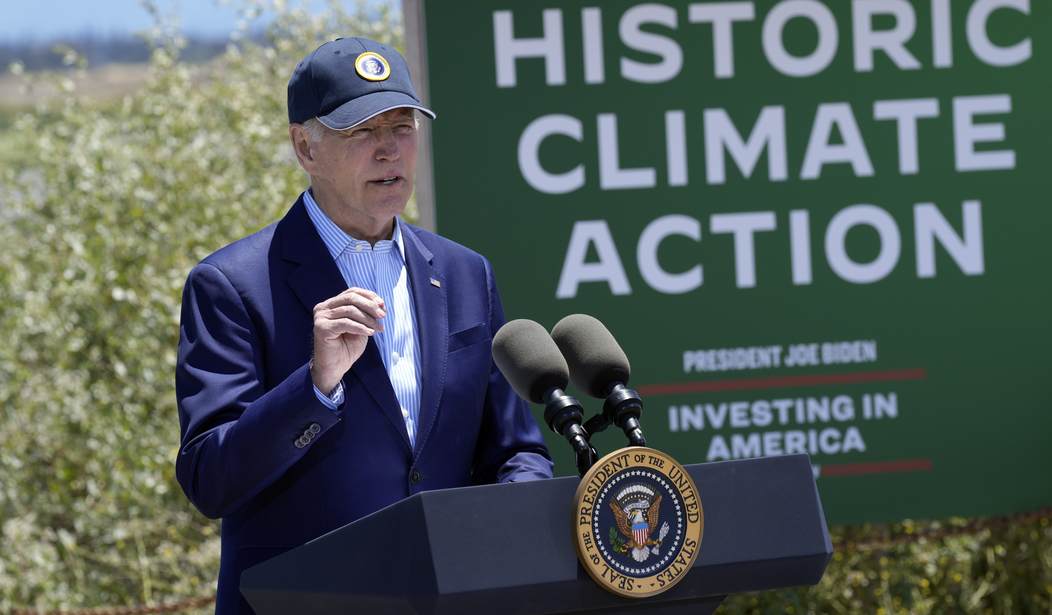Ought nature to have “similar rights to humans”?
Is it time that we evolve our understanding of rights and who or what deserves them?
Environmental activists think so.
It is, however, unclear to me why granting “nature” — not a living being, certainly not human — what were previously understood as “human rights” reserved for humans would be necessary in lieu of simple laws regulating this or that human activity that might adversely affect the environment.
Via New York Post (emphasis added):
Legislation that grants nature similar rights to humans is becoming more popular across the globe, with multiple countries and localities approving nature rights laws and several more considering similar legislation.
Panama, Ecuador and Bolivia have all moved to recognize the rights of nature with national legislation, a movement that has gained traction around the world and in the United States, with 10 states having some form of legal protections for nature, according to a report by CBS News.
The most recent country to join the movement was Panama, where the new law was used to shut down one of the largest copper mines in the world.
Related: Hillary Claims ‘Climate Change’ Killed 500,000 Last Year, ‘Particularly Pregnant Women’
Protecting the environment — a position I have previously elaborated on at PJ Media — is an important and, in the most literal sense of the word, actually conservative mandate not just from a moral perspective but from a Judeo-Christian one.
And I brought you into a plentiful land to enjoy its fruits and its good things. But when you came in, you defiled my land and made my heritage an abomination.
– Jeremiah 2:7
Granting inanimate objects rights would seem to have ulterior motives, potentially including demoting the status of humanity as the supreme “referent object” — to borrow a term from international relations theory describing “the thing that is threatened and needs to be protected” — by granting the same to non-humans.
The logic of environmental law as it currently stands, as far as I understand it, is that the degradation of the environment compromises human welfare, and that damage to human welfare — as humans are understood to have the basic right to a livable environment — is what justifies sanctioning the entities that violate it.
Continuing:
Behind the effort in [Panama] was Callie Veelenturf, a 31-year old American marine biologist from Massachusetts who has spent much of her career studying and advocating for the protection of sea turtles.
But a legal battle to protect herself from sexual harassment in 2018 became a turning point for Veelenturf, who realized nature did not have the same legal recourse she had as a human.
“I realized that we can’t defend the rights of nature as I had just defended my rights, because nature largely has no rights in our legal systems,” Veelenturf told CBS News.
The marine biologist said a book, “The Rights of Nature: A Legal Revolution That Could Save the World,” helped solidify the idea in her mind, causing her to make it “a mission” to advance the concept across the globe.
“It prioritizes the needs of the ecosystems and not the needs of humanity,” Veelenturf said.
So, presumably, turtle sexual harassment victims deserve their own #MeToo Cultural Revolution… or something?
Imagine trying to connect a personal sexual harassment episode to turtle rights. If you can, congratulations: you’ve successfully penetrated the Social Justice™ hive mind and glimpsed the scene from inside the belly of the beast, according to which all of the world’s ills can be remedied by simply granting more rights to more things and endowing more government bodies with more money to enforce them.
I have no doubt that this marine biologist means well. But she knows not what she does or what forces she would like to unleash. Granting nature “rights” will certainly, if it’s not already, be abused to the ends of the Earth by Machiavellian private and public sector actors for ends that have nothing whatsoever to do with environmental conservation.










